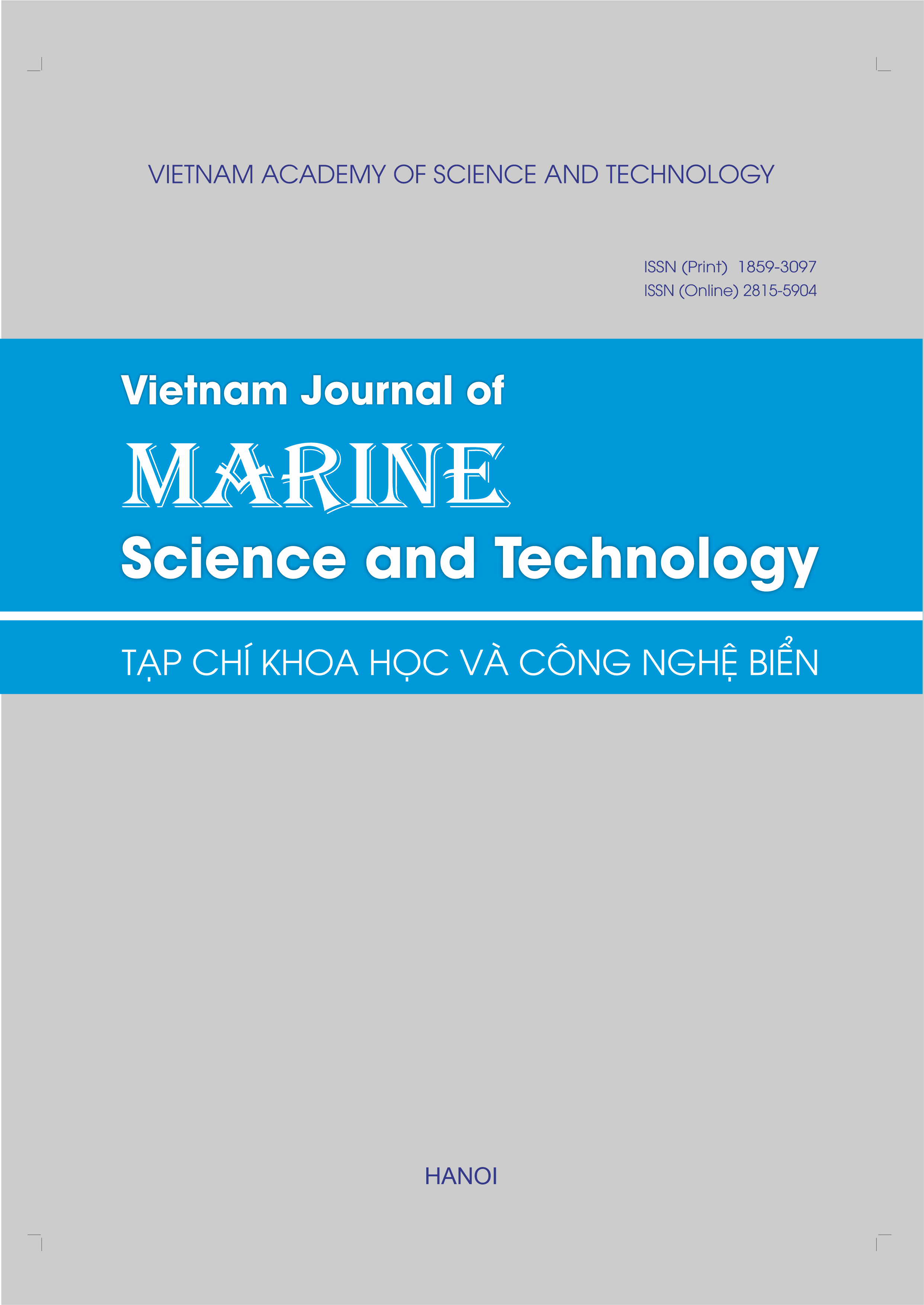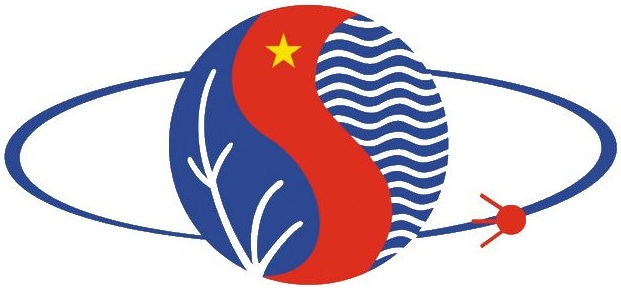ESTIMATION OF WAVE CHARACTERISTICS IN EAST VIETNAM SEA USINGWAM MODEL
Author affiliations
DOI:
https://doi.org/10.15625/1859-3097/14/3/5158Keywords:
WAM cycle 4.5, East Vietnam Sea, Wave field, Typhoon, Monsoons.Abstract
WAM (WaveModeling) is a third generation wave model developed by WAMDI Group which describes the evolution of a two-dimensional ocean wave spectrum under the effects of winds, currents, bottom and non-linear wave-wave interactions. The model runs for deep and shallow waters and includes depth and current refraction. This study used the WAM cycle 4.5 with model domain which is covered from 990E to 1210E and 00N to 250N with a resolution of ∆X = ∆Y = 0.250. Bathymetry of East Vietnam Sea (EVS) was taken from ‘ETOPO5’ data set of National Geophysical Data Center, Colorado, USA with resolution of 5’ (≈ 9 km). Wind velocities were obtained from 6 hourly NCEP/NCAR reanalysis data, USA with resolution of ∆X = ∆Y = 0.250. Study results show that during NE monsoon period, the main wave direction in EVS was NE and vice versa during SW monsoon period. Regions of greatest wave height were in the central and northern part of the EVS. Statistic of computed wave characteristics from 1987 to 2011 shows that wave regime in the offshore region of Nhatrang coast has two main wave directions that are NE with 40.82% of occurrence, SSW with 20.15% of occurrence. NE monsoon wave dominated from October to April of the next year, SW monsoon wave dominated from June to August. May and September are transitional periods. Assimilation of wind data with resolution of ∆X = ∆Y = 0.250 permits the model to be used to simulate the wave field during typhoon activity in EVS.Downloads
References
WAMDI Group, 1988. The WAM model - A third generation ocean wave prediction model, Journal of Physical Oceanography, 18(12): 1,775-1,810.
Young, I. R., 1988. Parametric hurricane wave prediction model. Journal of Waterways Port Coastal and Ocean Engineering, 114(5): 637-652.
Londhe, S. N., Vijay Panchang, 2006. One-day wave forecasts based on artificial neural networks. Journal of Atmospheric and Oceanic Technology, 23(11): 1,593-1,603. Online publication date: 1-Nov-2006.
Mandal, S., and Prabaharan, N., 2003. An overview of the numerical and neural network Accosts of ocean wave prediction, COPEDEC VI, 2003. Colombo, Sri Lanka.
Mau, L. D., Sanil Kumar, V., Nayak, G. N., Mandal, S., 2004. Estimation of wave characteristics during hurricane in the Hoian area, Central Vietnam. Proceeding of the Third Indian National Conference on Harbour and Ocean Engineering, 1, 105-113.
Guenther, H., Hasselmann, S., Janssen, P. A. E. M., 1992. The WAM Model Cycle 4.0. User Manual. Technical Report No.4, Deutsches Klimarechenzentrum, Hamburg, Germany, 102 p.
Guenther, H., 2002. WAM Cycle 4.5. User Manual. Technical Report. Institute for Coastal Research GKSS Research Centre Geesthacht. Germany, 40 p.
Tolman, H. L., 1991. A third-generation model for wind waves on slowly varying, unsteady and inhomogeneous depths and currents. Journal of Physical Oceanography, 21, 782-797.
Chu, Peter C., Kuo-Feng Cheng, 2008. South China Sea wave characteristics during typhoon Muifa passage in winter 2004. Journal of Oceanography 64(1): 1-21. Online publication date: 1-Feb-2008.
Ali Mirzaei, Fredolin Tangang, Liew Juneng, Muzneena Ahmad Mustapha, Mohd Lokman Husain, Mohd Fadzil Akhir, 2013. Wave climate simulation for southern region of the South China Sea. Ocean Dynamics, 63(8): 961-977. Online publication date: 9-Jul-2013.
Liangming Zhou, Zhanbin Li, Lin Mou, Aifang Wang, 2014. Numerical simulation of wave field in the South China Sea using WAVEWATCH III. Chinese Journal of Oceanology and Limnology, 1-9. Online publication date: 24-Jan-2014.
Lê Đình Mầu, 2006. Tính toán các đặc trưng sóng biển khơi bằng mô hình số trị WAM. Tạp chí Khoa học và Công nghệ biển. Hà Nội, Việt Nam, Tập 6, Số 3. Tr. 26-39.








